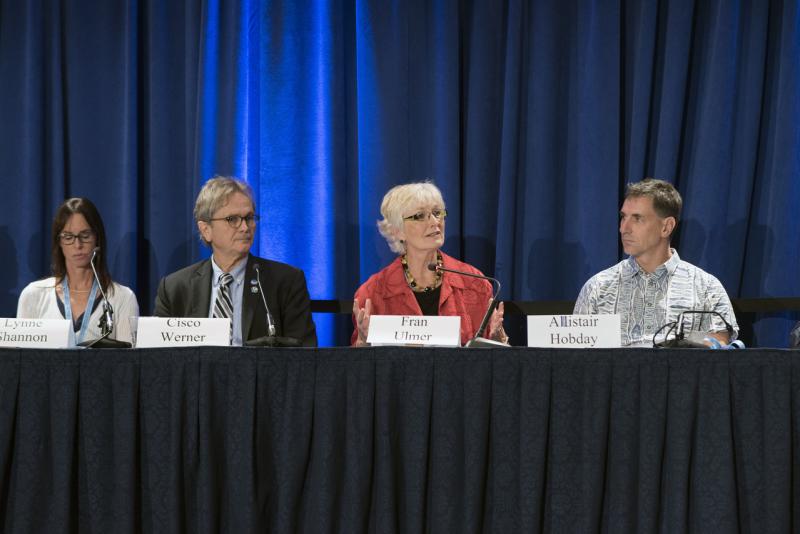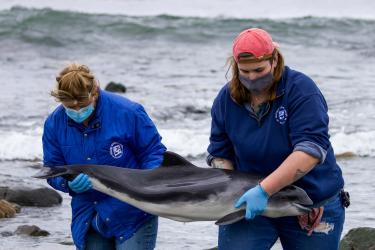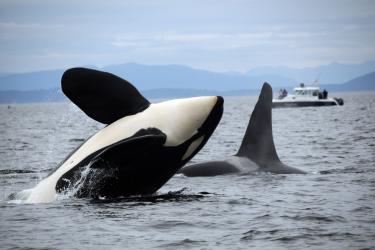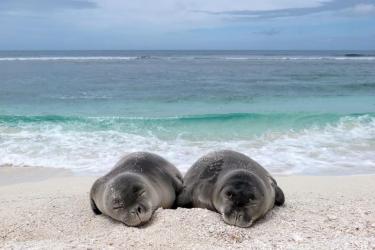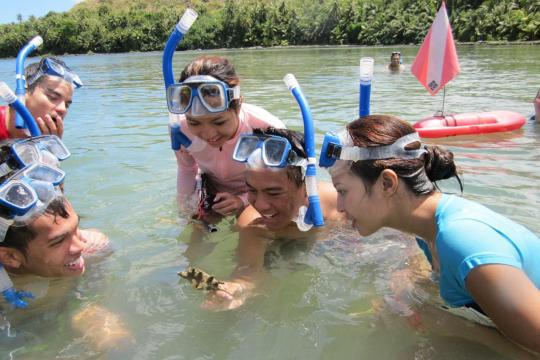
Across the world, changes in our climate and our oceans are having very real and profound effects on marine ecosystems and the economies that depend on them. For the global marine sciences community, conserving and sustaining these resources in the face of changing ocean conditions is the challenge of our lifetimes. And now more than ever before, NOAA Fisheries data and advice are helping businesses, communities and nations assess risks and find innovative solutions to sustain fish stocks and other living marine resources in a changing world.
But this work isn’t easy and we can’t do it alone. For this reason, in June, nearly 700 scientists from 51 nations gathered in Washington, D.C., to discuss the latest data, share information, and advance responses to rapidly changing ocean ecosystems during the 4th International Symposium on the Effects of Climate Change on the World’s Oceans. NOAA Fisheries had the privilege of serving as local host for the event, and NOAA was well represented with scientists from across the country leading scientific sessions, giving presentations, and fostering new and existing science partnerships.
Many of the Symposium key findings will be included in a special issue of the ICES Journal of Marine Science to be published in 2019.
For those who were unable to attend the conference, you can view videos online from daily plenaries and scientific sessions. Here are a few sessions I recommend watching:
- NOAA's Acting Administrator, Rear Admiral Timothy Gallaudet, kicked off the conference by illustrating our agency’s immense marine science and conservation mission, and highlighted how our work tracking ocean change contributes to our nation's highly-valuable "blue economy."
- I participated in an opening panel alongside four internationally-recognized scientists and five leading environmental journalists engaged in a fast-paced discussion on some of the key issues being tracked at the Symposium, and how together we can help national and global citizens grasp the importance of changing oceans.
- Dr. Vladimir Ryabinin, Executive Secretary of the Intergovernmental Oceanographic Commission (scroll to 4:45), called upon all scientists to participate in the United Nations' Decade of Ocean Sciences for Sustainable Development, which spans 2021-2030, and work together to find the scientific solutions needed to reverse the declining health of our planet's largest ecosystem.
- There were many outstanding Plenary presentations by top scientists on specific topics - several that stood out for me were the talk by Dr. Gretta Pecl on tracking and responding to the rapid shifts in marine species distributions, and the presentation by Dr. Alistair Hobday on the important new field of marine heat waves.
- You can also see some of the key science findings through the eyes of a scientific illustrator who helped capture key ideas in graphic form through the week.
The Symposium was made possible by five primary organizations: the International Council for the Exploration of the Sea (ICES), the North Pacific Marine Science Organization (PICES), the Intergovernmental Oceanographic Commission (IOC) of UNESCO, the Food and Agriculture Organization of the United Nations (FAO), NOAA, and many sponsors (see sponsor list).
I thank all of these organizations for their support of this important work, and I’d also like to recognize the contributions of NOAA Fisheries scientists and staff who worked tirelessly to host our domestic and international science partners at this Symposium. In closing, I'd like to recognize and thank everyone at NOAA Fisheries for doing their part to help monitor, understand and predict our changing world so we can sustain marine resources for generations to come.
